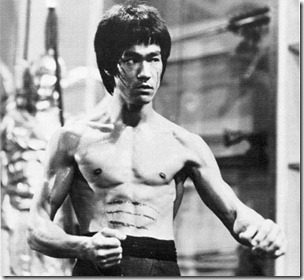Archive for May, 2009
Neuroplasticity: Your Brain’s Amazing Ability to Form New Habits
 One of the most popular areas of research in psychology these days is neuroplasticity. Neuroplasticity refers to the brain’s ability to restructure itself after training or practice. In many ways, neuroplasticity is what makes personal growth and development possible at its most basic level. With the understanding that change is indeed possible, you’re able to focus on the ways in which you’d like to grow instead of whether or not it’s achievable for you. It’s possible, it’s proven, and now it’s up to you!
One of the most popular areas of research in psychology these days is neuroplasticity. Neuroplasticity refers to the brain’s ability to restructure itself after training or practice. In many ways, neuroplasticity is what makes personal growth and development possible at its most basic level. With the understanding that change is indeed possible, you’re able to focus on the ways in which you’d like to grow instead of whether or not it’s achievable for you. It’s possible, it’s proven, and now it’s up to you!
We are what we repeatedly do. Excellence, then, is not an act, but a habit. – Aristotle
An example of how neuroplasticity works: when you view the brains of people who frequently practice playing the violin under fMRI (functional MRI) they appear to have developed a larger area of their brain devoted to mapping their fingers. This change is directly related to the quantity and the quality of the practice they’re performing – their brains are adapting in very real and tangible ways unbeknownst to them.
One of the fun sayings around neuroplasticity: “neurons that fire together wire together… and neurons that fire apart wire apart.”. Effectively this means that when neurons activate at the same time as a response to an event, the neurons become associated with one another and the connections become stronger. This is why people talk about “neural pathways being set” with respect to increased practice – the more practice you accumulate, the more ingrained or grooved the pathways become. Of course the inverse happens as well: if those pathways aren’t utilized, the space will be used by other pathways needing room to grow. Use it or lose it!
Make Your Training Harder Than The Real Thing
 No matter what you want to get better at – no matter what your primary objective is -you should always make your training or practice harder than the real thing actually is. While this definitely can prepare your body for whatever it is you’re about to undertake, it’s really best used as a way to convince your mind that you’re ready. This approach is critical to focus because in order to achieve deep and meaningful focus on anything, you can’t have self-doubt permeating your thoughts. You need to be “in it”; you need to not only know that you’re prepared, but you need to know that you’re the most prepared you can possibly be!
No matter what you want to get better at – no matter what your primary objective is -you should always make your training or practice harder than the real thing actually is. While this definitely can prepare your body for whatever it is you’re about to undertake, it’s really best used as a way to convince your mind that you’re ready. This approach is critical to focus because in order to achieve deep and meaningful focus on anything, you can’t have self-doubt permeating your thoughts. You need to be “in it”; you need to not only know that you’re prepared, but you need to know that you’re the most prepared you can possibly be!
This mentality is pervasive in sports where competitors routinely cite how while their opponents are sleeping, they’re training. While their opponents are training, they’re training harder. While their opponents are training harder, they’re training smarter. They need to out-train, out-think, out-practice, out-sleep, and out-diet their opponents. The important thing is to believe you’re doing this. Because if you don’t, you won’t believe you can win or succeed when it matters.
Imagine yourself getting into a boxing ring or starting a race knowing you didn’t train as hard as your opponent. Or stepping into an important meeting knowing that the person you’re presenting to knows more about the material than you do. You’re starting off with a serious disadvantage where it matters most.
Naturally this is a mindset that isn’t limited to sports or athletic events. It’s just as important in the office, in school, in music, or in any pastime where practice or training is essential to long-term success. Put this thinking to use any time you have an important event that involves preparation of some kind. It’s a critical component of fear management – there’s no way to overcome fear of something without having confidence that you’ve done everything you can to prepare. With research, fear can dissipate and your performance can improve.
Staying Focused With Microsoft Outlook: Email
 Time to get tactical; too many posts recently haven’t been! This post is focused on Microsoft Outlook 2003 and 2007.
Time to get tactical; too many posts recently haven’t been! This post is focused on Microsoft Outlook 2003 and 2007.
Since 1997, Microsoft Outlook has been my email program of choice. Sure I’ve dabbled with web mail like Hotmail and Gmail for my personal account, but for anything “serious” I always come back to Outlook. Of course it doesn’t hurt that I work for Microsoft and therefore couldn’t escape Outlook if I tried, but I continually find Outlook to be an absolute gem for email and for productivity in general.
Part of this is due to the fact that email, calendar, notes, to-do items, a corporate directory, and umpteen other important “modules” are available in a single application. Another big factor is comfort of course – 12 years in a single program means there isn’t much I don’t know about it at this point. But for all intents and purposes, I love using Outlook and always have.
This post is about dealing with email overload in Outlook. It assumes you’re likely in a corporate environment with Microsoft Exchange and that you know a thing or two about Outlook already. It also assumes email has a chokehold on your life, and you want to learn how to escape with your sanity.
The principles and techniques in this post are things I’ve learned and used over the years and have taught to hundreds of others at Microsoft through “brown bags”, 1:1 coaching, and seminars. Special thanks go out to Omar Shahine, Michael Affronti, and Trevin Chow for lots of brainstorms and conversations about Outlook email – much of this comes from them. Omar’s actually my partner in crime as we’ve given talks on Outlook together a few times.
Before getting into the nitty gritty, let’s start with 7 basic email principles which aren’t specific to Outlook use:
- Reserve your inbox for important items. Any distribution lists or other types of email you receive that are just of the “FYI” variety (shopping receipts, Netflix shipping reminders, Facebook notifications, etc.) should be filtered away from your attention automatically.
- Deleting and archiving email should be a one-step (or one-click) action. Delete without prejudice and archive anything you think you’ll need to refer to at some point, but don’t worry about having deep, nested folders.
- Never read an email twice. When processing your email, every time you open a message use the 4Ds discussed as part of David Allen’s Getting Things Done. Delete it immediately, Do it immediately, Delegate (or forward) it, or Defer it by converting it to a task or appointment.
- Emails that need follow-up (either by you or by others) should be converted to Tasks or Appointments. Convert an email to a task with a due date if you want to do it on that date, and convert it to an appointment if it’s time-based (i.e. pick someone up from the airport). If it’s mandatory that something get done on a certain day but it doesn’t matter what time it’s done, I usually book time for myself on my calendar anyway just to make sure it happens that day.
- Tasks should be broken down into two important categories: “Next Actions for you” and “Waiting on from others”. While there are other categories and lists you can use in Outlook, these are the two most critical.
- Bounce your inbox at zero as often as you can – ideally a few times per week. This means “seeing the white” in your inbox and knowing 100% of your email has been processed. See Bouncing at Zero for more information about this.
- Bounce your daily task list at zero everyday. Your entire task list will never be empty, but every single day you should know what you’ve accomplished and rebalanced your items for the future (i.e. don’t just ignore them!) Again, bounce at zero!
There are a dozen more principles I could list, but I want to keep this post a) short and b) more about making things happen than about platitudes. As Bruce Lee said, “Knowing is not enough, we must apply”.
Take Micro-vacations to Boost Focus
Feel overwhelmed yet? Most people do. They’re in the daily grind: wake-up, work, come home, sleep, rinse-and-repeat. The failing economy has already hit people’s wallets and purses hard enough to limit traditional vacations, and without something to look forward to, the day-to-day hurdles can be even harder to stomach. And of course, mood affects focus in profound ways – someone who isn’t inspired can find the flow state to be pretty elusive. Focus requires some level of inspiration for a kick-start – without it, you can end up in a negative downward spiral for quite a while.
Tim Ferris talked about “mini-retirements” in his book, The 4-Hour Workweek. The New York Times and The Wall Street Journal covered “mini-vacations”, which are shorter but more frequent getaways to recharge. I’m generally a fan of both concepts (although find mini-retirements to be a lot more impractical). But taking 3-day weekends is still not something most people can do all the time to recharge their batteries. And I really do think that focus is local. Meaning: in order to improve your focus consistently, you need to start with a daily habit and not a monthly, bi-monthly, or annual one. Do something every single day to increase focus and over time, the actions will compound into a heap of focus-inducing love.
So take your 3-day weekends… but look at what you can do every single day as well. I’ve started calling these quick recharges “micro-vacations”.
Micro-vacation (def’n): Daily activity lasting at least 15 minutes that can’t be considered “work” by any sane, rational human being; purpose of which is to recharge and increase overall focus for the next few hours
In talking with people who have trouble with focus, one thing I’ve found is that they don’t intrinsically value taking breaks. They think it’s slacking off or being unproductive. But nothing could be further from the truth. In order for your prefrontal cortex to kick into focus mode, it needs to be ready – and too much work simply doesn’t work. Just like your muscles, your brain needs time to relax before continuing to push on.
Efficiency Is Anything That Scores
 One of my favorite quotes from Bruce Lee: efficiency is anything that scores.
One of my favorite quotes from Bruce Lee: efficiency is anything that scores.
It’s simple, direct, and to the point – just like Bruce Lee’s approach to martial arts, Jeet Kune Do (JKD). Much has been written about Bruce Lee and JKD since his death in 1973, and just about as much has been misinterpreted, twisted, or otherwise confused. But one overwhelming and indisputable fact remains: Lee believed that the “classical mess” of traditional martial arts were a hindrance to personal growth. Specifically the focus on form over function, or system over person. The individualism of the individual was blanketed by the dogma surrounding them; in order to become self-actualized, a person is required to break free of the trap of limited thinking and find their own path.
This thinking transcends martial arts – it’s applicable to most aspects of life. But before going further, let me explain this in a little more detail. Let’s start with two men, both of them physically fit, intelligent, and interested in martial arts. These two men for the purposes of this exercise are equivalent; one isn’t more genetically gifted than the other. And drive, desire, and the necessary emotional intelligence are present in both of them. But both are training quite differently. Of course this example works just as well with male OR female protagonists, I just didn’t want to write a bunch of “he or she” or “him or her” 🙂
Does Goal Setting Hold Us Back?
 Over the years I’ve read many criticisms of “pop psychology”, specifically relating to the notion that setting goals is a necessary precursor to actually achieving them. There are people who believe that the very act of setting goals is what holds people back from achieving something they’d otherwise be drawn towards. Sort of like a reverse law of attraction.
Over the years I’ve read many criticisms of “pop psychology”, specifically relating to the notion that setting goals is a necessary precursor to actually achieving them. There are people who believe that the very act of setting goals is what holds people back from achieving something they’d otherwise be drawn towards. Sort of like a reverse law of attraction.
Now, I’m a big fan of thinking critically and applying a skeptic’s eye towards everything, so instead of ignoring perspectives that differ from mine, I try to really internalize them, live with them, and apply anything particularly useful to my own approach.
So before going further, let’s recap some of the most prevalent critiques of setting goals:
- People with goals are future focused and not focused on the present moment. By focusing on something that hasn’t happened yet, they’re not focusing on what’s happening now. Goal setting is by definition counter to living a present and conscious life.
- Goals are rigid and unchanging despite changes around them. Someone who set a goal to save an additional $10,000 in January 2008 just to lose $30,000 in the stock market by October for instance. By having a rigid goal that wasn’t adjusted for everyday reality, this person wasn’t able to react quickly enough to changing market conditions. While others reacted quickly, this person stayed attached to a false goal.
- Goal setting leads to a loss of meaningful relationships. People who are so focused on achievement can fail to focus appropriately on the things that really matter in life: connection with other human beings. Spend too much time blindly following a goal instead of just living and relationships start to break down.
- Setting goals can make fun things feel like work. The immediate reaction people have to deadlines and commitments is to balk. People don’t like to be told what to do and when they need to get it done – they long to be free. If someone – even themselves – tells them they have to achieve something by a specific date, they’re not going to have fun in the process even if it’s something they enjoy.
- Setting goals absolves people of thinking critically. In a Northwestern University paper called “Goals Gone Wild”, Professor Adam Galinsky makes the claim that “[goal setting] can focus attention too much, or on the wrong things; it can lead to crazy behaviors to get people to achieve them.” There have also been papers written about how “goals and other incentives can constrict our thinking” by giving us an unneeded fallback plan. Why think for yourself when you know you have to achieve the goal at all costs?
Naturally, just like most things in life, there’s a much more nuanced way to think about this.




